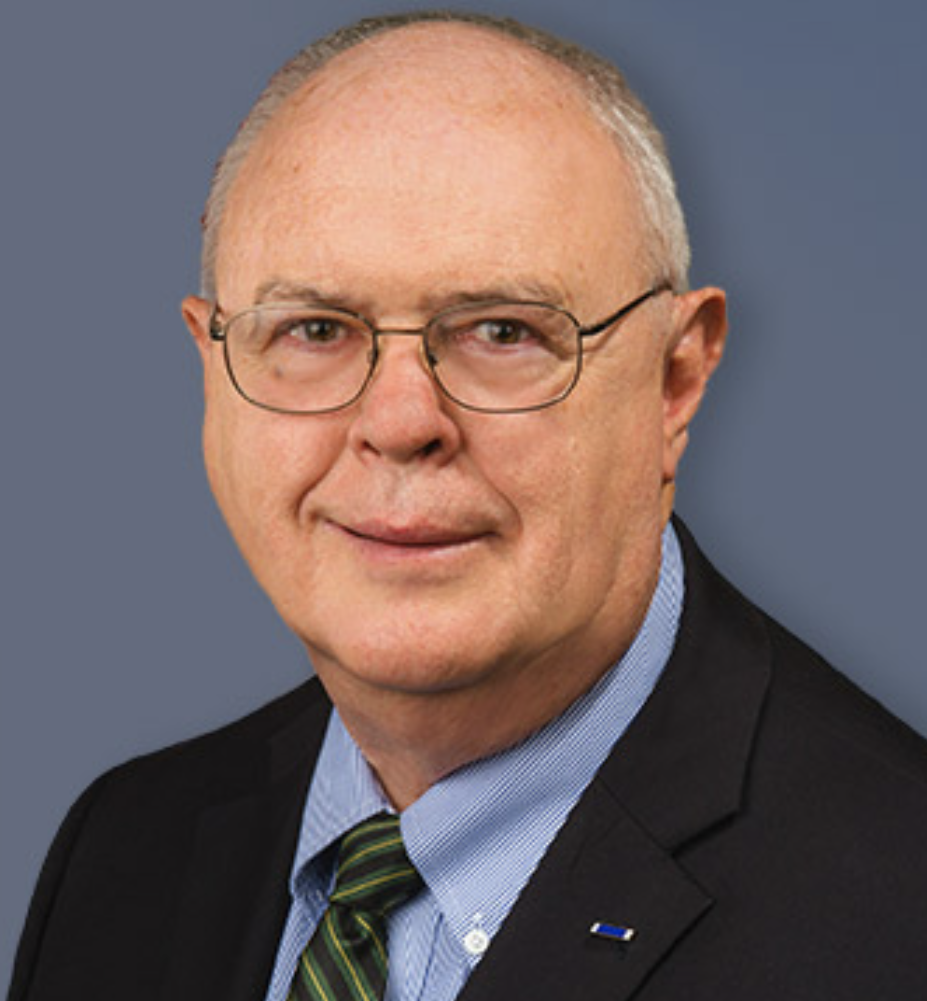Mid Bay News got an hour of State Representative Patt Maney’s time to talk about the most recent session of the Florida Legislature – as well as the upcoming special session.
It Ain’t Over Til It’s Over: Florida State Legislature Called Back Into Session Over Congressional Redistricting Maps.
The regular legislative session ended in March. But, Niceville’s representative in the Florida State Legislature still has to head back to Tallahassee at the end of the month. Representative Patt Maney must return to the capitol to discuss and vote on new Florida Congressional maps. Governor Ron DeSantis vetoed the maps the state legislature sent to him for approval and cited legal concerns. With that rejection of congressional districts, legislators must create new ones that will pass unscathed under the governor’s veto pen.

Governor Ron DeSantis
Despite the return of the legislature to Tallahassee starting on April 18, Representative Maney says the legislative session was an overwhelmingly positive one for him. He believes he met the needs and spoke on behalf of the people of Niceville, Valparaiso and Bluewater Bay.
Florida House Bill 873 Passes through the 2022 legislature.
The bill removes from the public record the names of companies or people who supply Florida with drugs for the death penalty.

Representative Patt Maney Debates HB 873 on the House Floor
Representative Maney sponsored House Bill 873 in this legislative session. Once signed by the governor, the bill exempts information about who helps implement the death penalty in Florida from public records laws. This bill, passed by both the house and senate, awaits Governor Ron DeSantis’ signature. HB 873 terminates the public’s ability to request as a public record the names of companies or individuals in the supply chain that provide drugs to the State of Florida to execute individuals convicted of capital crimes. The bill passed the Florida house 84-32 and the Florida Senate 28-10. You can watch the debate on the bill here at the 3:21:54.
“Anti-death penalty activists that have learned that a particular company makes a component of the [drugs that are used to execute a prisoner in the State of Florida],” Representative Maney said, “they publicly pressure the company that has decided to no longer sell those drugs to the Florida Department of Corrections. If more companies do that, then the department won’t be able to carry out statutory responsibility after someone has been tried, convicted [and] sentenced.”
The issue at hand, Representative Maney says, was not the death penalty – but the ability of the State of Florida’s Department of Corrections to carry out the sentences handed to them. “If the department can’t get the pharmaceuticals that are necessary, then the only other option is electrocution. And there has been controversy about that with claims that it is less humane than lethal injection.”
Representative Maney noted that the state of South Carolina Legislature recently okayed firing squads for executions due to the lack of drugs required for lethal injection.
The Democrats in the state legislature largely voted against the bill. They brought up their opposition to the death penalty in general. They opposed the closure of public records to protect the companies and individuals who provide the state with manpower or supplies to execute prisoners on death row. Florida has a comprehensive open records law compared to other states.
Representative Carlos Guillermo Smith argued against the bill, citing two other states who passed bills similar to HB 873, Texas and Tennessee. He says they still have difficulties obtaining drugs for lethal injection. The Texas Tribune reports the Lone Star State has 13 doses of the drug cocktail left before it runs out. The Tennessean reports a similar situation in the Volunteer State.
State Representative Diane “Ms. Dee” Hart, another Democrat, noted that Johnson and Johnson, the inventor of the drug had condemned its use in lethal injections. Johnson and Johnson does not make or supply the drug to the state of Florida. According to the Washington Post, Johnson and Johnson has never sold the drug in the United States. Instead, generic manufacturers create and sell the drug.

Florida State Representative Mike Beltran
Republican colleagues supported Representative Maney in the passage of this bill. Representative Mike Beltran of Hillsborough County said that if the state would execute people, “we should do it right.” He added that the state did not frequently put people to death and that “If you’re opposed to the penalty, then bring a bill or a citizens initiative.”
The State of Florida last executed a person in 2019, when it put Gary Ray Bowles to death with the use of a three-drug protocol which begins with the anesthetic etomidate.
“It’s important to protect the department of correction’s ability to carry out a court-ordered execution in the most humane way possible,” Representative Maney said. “It’s not a pro or anti-death penalty bill. It is just a bill that protects the state’s ability to get the pharmaceuticals necessary to carry out the law.”
HB 1143 – Mental Health and the Florida Baker Act Reform

A recent news story sticks in Representative Maney’s mind as he talks about the Baker Act and the need to change the way Florida deals with mental health issues. In Indian River County, in south Florida, a sheriff’s deputy shot and killed a man who had a mental health crisis inside a local hospital. The man pulled a pair of scissors and began to threaten people. According to Maney the man had been taken in for a Baker Act after he threatened to hang himself and was left in the hospital without psychiatric care for more than a day.
It’s one of hundreds of stories about the state of mental health in Florida which have convinced Representative Maney of one thing – the system is broken and the Baker and Marchman Acts don’t work to protect people with mental health issues or the people around them.
Florida’s Baker Act Does Not Work – And Rep Maney Has a Plan to Fix It.
Many years on the bench as a judge gave Representative Maney insight into the dysfunction and inefficiency of Florida’s mental health infrastructure.
He knows one thing – Florida’s Baker Act is broken. It needs a complete overhaul.
“The [Current version of the Baker Act Law] does not serve the public well,” Maney said, “It doesn’t work well for law enforcement. And as we have seen, it’s a dangerous situation for people in crisis and law enforcement. We’ve had officers killed – one in Niceville, and officers killed in Fort Walton Beach… It’s overburdening our emergency rooms in our hospitals, particularly the Fort Walton Beach Hospital, because that is the licensed receiving facility. It’s overburdening the emergency room in particular as they try to process those people and heart attacks and car wrecks and children falling out of trees or workers getting injured on the job… Psychiatrists are not always available, and the patient ends up waiting in the emergency room. That can be a real distraction when doctors and nurses are trying to take care of other patients.”
As the Baker Act law currently works, a person gets stabilized and then released, which Maney knows from experience doesn’t work for the patient, their families or the community. This reality has everything to do with the fact that we are spending lots of money in the wrong place. Instead of putting money into mental health support, we spend the money on incarcerating the mentally ill, Maney believes.
“We’re spending an awful lot of money on the [corrections] system without really affecting the welfare of the mentally ill individual, the family, law enforcement, or the taxpayer. What I want to do is build a system that provides free crisis support and post-crisis resources so that people aren’t cycling through the system repeatedly.”
Instead of the current program, which could cynically be viewed as a catch, put in jail, release and repeat program – Representative Maney envisions a network of mental health diversion programs like the State of Florida and Okaloosa County set up as a joint project in 2020.
Representative Maney says that the program, which can host up to 15 people, is always at capacity. The budget, not yet signed by Governor DeSantis, allocates $350,000 for the upkeep of the mental health diversion program in Fort Walton Beach. Representative Maney says that we need to do much more to reduce the number of people in a mental health crisis in Niceville, Okaloosa County and Florida. Doing so, he believes, will reduce their burden as a jailed population on the taxpayer.
A Roadblock in the Plan Means Another Year To Wait For A Chance At Baker Act Overhaul
While it made it through some of the numerous hoops a bill has to jump through to become law, HB 1143 didn’t make it to the finish line. Despite the fact HB 1143 won’t be wholly implemented, pieces of the bill made it into other representatives’ bills and passed.

State Representative Linda Chaney
One piece of Representative Maney’s bill, which concerned the Baker Acting of minor children, made it into a bill by Rep Linda Chaney. Chaney, the Florida State Representative from Pinellas County, a fellow Republican, added a provision of HB 1143 which requires law enforcement officers, to use “the least restrictive means possible” when taking a child into custody in a Baker Act proceeding.
“What Representative Chaney did was a good partial step, and it got through,” Rep Maney said, “But I will be back next year… I will go back and build on that and get the remaining reforms throughout that I think are important.”





